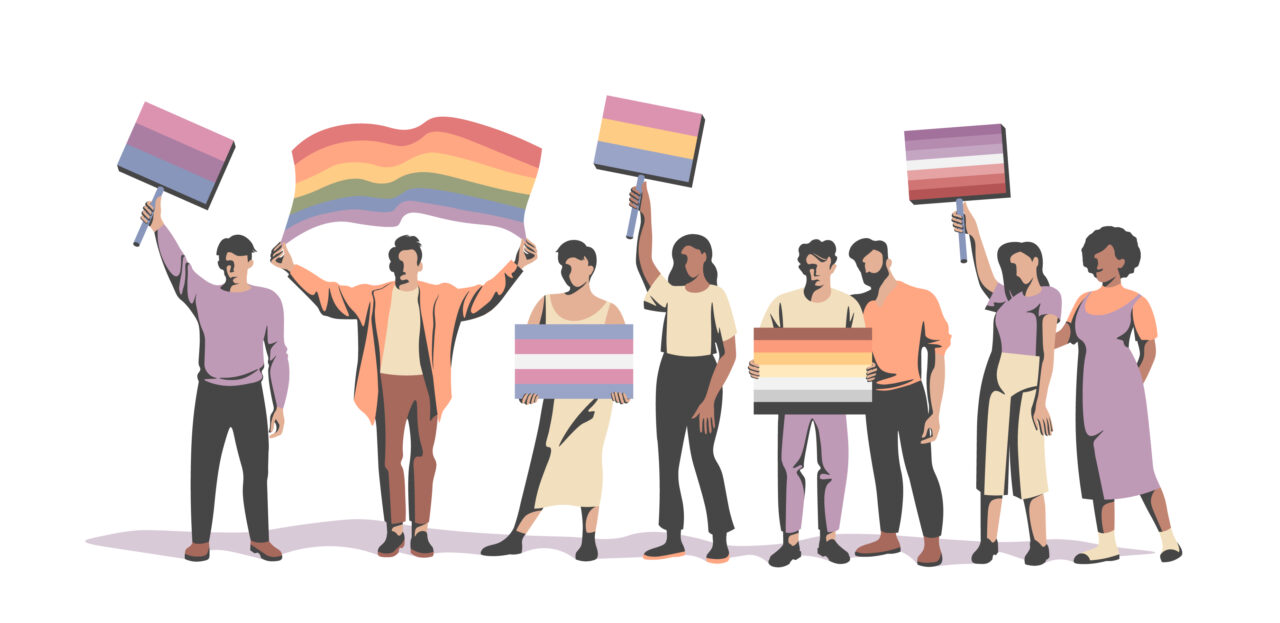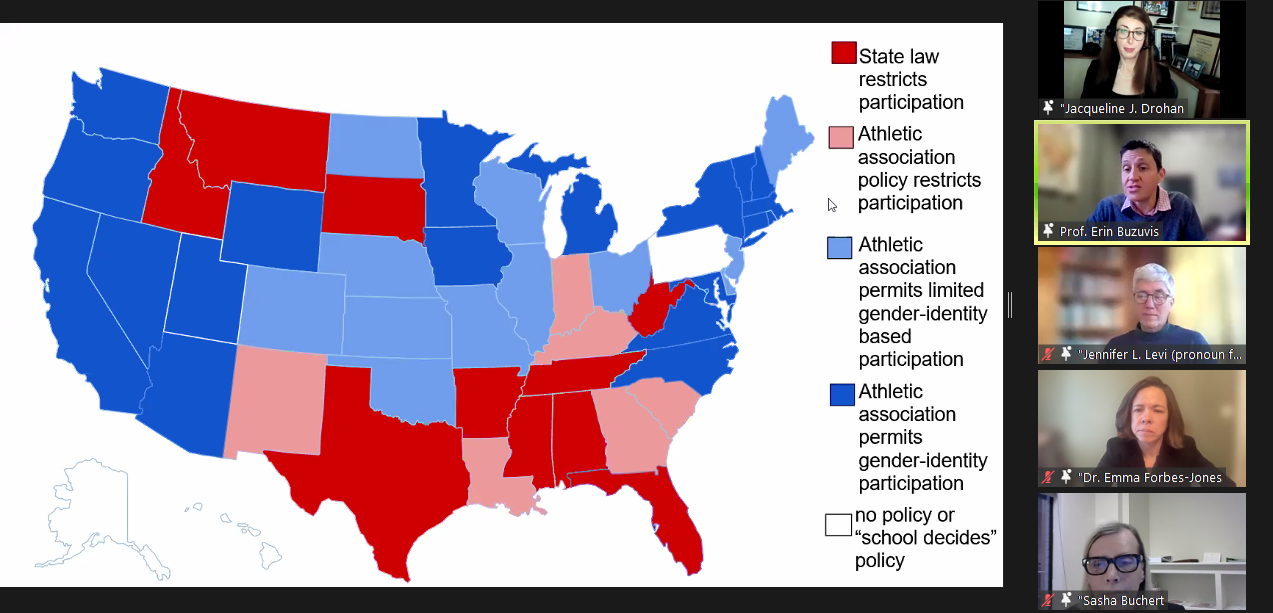Why Allowing Transgender Youth To Participate In Sports Levels the Playing Field
12.2.2021
Categorical bans against transgender youth who want to play sports benefit no one.
This was the consensus of panelists at the first public forum of the newly-created Task Force on the Treatment of Transgender Youth in Sports.
Sports thrive on diversity and find places for it, said Dr. Carolyn Wolf-Gould, director of the Gender Wellness Center and an expert in transgender health. She noted how a football quarterback and a defensive lineman will have different bodies but that strengthens a team.
Robert Herbst, a member of the task force and a panelist at the forum, added that puberty doesn’t have the same impact on everyone. “Anybody who has ever looked at a team of 14-year old boys, you’ve got some who look they’re 8 years old and then there’s the kid that we always joke has the car and ask ‘Can you drive me home?’”
Cisgender males who have gone through puberty have larger muscle mass, more bone density, broader shoulders and thicker tendons. Cis females will have wider hips, narrow shoulders and more oxytocin, which makes the joints looser. From an evolutionary perspective, this is to prepare women for childbirth.
Herbst noted that participation should come down to the individual and the sport. A transgender male who was born female and weighs 92 pounds may struggle with playing football but excel in gymnastics.
Jacqueline Drohan, chair of the Task Force on the Treatment of Transgender Youth in Sports and forum moderator, said that a smart coach knows how to keep children safe by putting them in the right positions, and training them on the skills to increase their abilities.
Extension of other exclusions
Lawmakers in 27 states have proposed banning children and teens who are transgender from participating in school sports programs that are consistent with their gender identity. In March 2020, Idaho was the first state to ban transgender athletes from competing in girls sports at the primary, secondary, and college levels.
Panelist Milo Primeaux, a civil rights attorney, said these anti-transgender bills are being introduced as part of a larger pattern “to police the bodies and lives of people who do not fit within sort of the norms and the cultural expectations of our society.”
He explained that this piggybacks off other states’ efforts, such as banning transgender people from using public restrooms.
“The vast majority of us have not and do not (carry around our birth certificates),” said Primeaux.
He is not surprised to see similar restrictions happen in sports. “Sports is one of those industries that is historically segregated by sex and by gender and by a sense of expectation of what that means to be on a men’s team or women’s team, masculinity and femininity, and trying to ride the line.”
Why New York?
Drohan said that New York State is one of many fairly permissive states that have general guidelines that encourage full inclusion of transgendered students in sports. However, she said, “We’re not perfect” and there are stories across the state that indicate we have work to do.
Opponents of transgender student inclusion in sports have filed suits claiming that Title IX of the Civil Rights Act, which prevents discrimination in educational programming based on gender, should be reinterpreted or rewritten to clarify that it prevents the inclusion of transgender students. Legislation has been introduced that “would literally act to strip Title IX of the protections afforded to transgender people,” Drohan said.
Drohan also said the question of transgender youth and sports has been significantly weaponized to argue against the passage of the Equality Act. She said the act would make federal civil rights clearer. “It would certainly include clarification that gender identity is specifically protected by Title IX and generally by the Civil Rights Act, including unemployment,” said Drohan. “But it would have a much broader effect this time in the LGBTQ community.”
Essential for all athletes
Wolf-Gould said she and her husband treat about 160 transgender youth in their clinic of Oneonta. She noted that they serve patients from a wide geographic area because “it is so hard to access care for these youth and their families.” In Arkansas, it is illegal to provide the gender-affirming care she does to transgender youth.
Sports are really important for the health of our children, Wolf-Gould said. “It helps to build teamwork, leadership, and discipline skills. Athletes do better academically and it helps students manage pressure.”
Most importantly, it teaches young people to overcome challenges they may face and provides a pathway to success later in life. So what happens when someone tells a transgender youth they cannot participate on a team?
According to Wolf-Gould, it harms the social, emotional and physical well-being of these kids. They are struggling with all of the stigma associated with their gender and they face relentless bullying in school.
“This additional blow is sometimes the last straw for our kids and can really lead to a devastating depression,” Wolf-Gould said. “It is essential that we develop welcoming and inclusive places for our trans athletes to participate, along with our cisgender athletes.”






